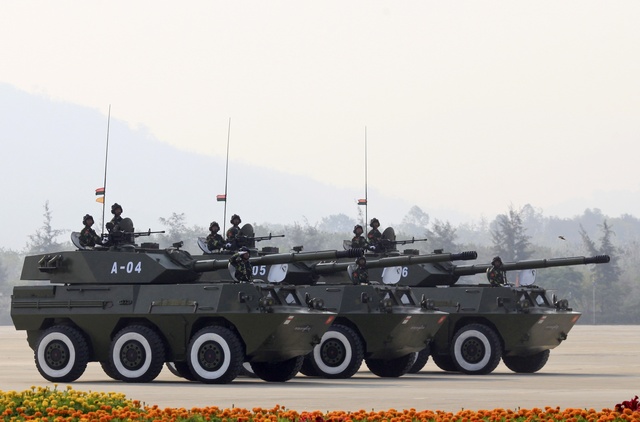Burma has reportedly agreed to give UN weapons inspectors wider access to facilities that could be used to develop nuclear technology, according to the world’s leading nuclear watchdog.
According to Reuters and AFP, the International Atomic Energy Agency (IAEA) said on Monday that Burma is set to sign the UN’s Additional Protocol on nuclear disarmament, which would give inspectors broad discretion to visit suspected nuclear facilities, at its annual general conference this week.
The announcement comes ten months after President Thein Sein pledged to abide by the UN’s arms embargo on North Korea, and to allow the IAEA full access to Burmese weapons sites. This move has been viewed by most western nations, including the United States, as a critical step in Burma’s democratic reform process.
In July, the US Treasury blacklisted a senior Burmese general, Thein Htay, for allegedly “purchasing military goods” from North Korea, backing reports that the two countries continue to enjoy a military relationship – possibly fuelled by nuclear ambitions.
In 2010, a joint documentary produced by DVB and Al Jazeera uncovered evidence of a nascent nuclear weapons programme in Burma, based on documents and photographs leaked by a former military engineer. The same year, a UN report revealed that North Korea may have supplied the regime with banned nuclear technologies.
[related]
Although Burma has repeatedly denied the allegations, the IAEA has requested access to the country since 2011.
The move is likely to be welcomed by the US which has repeatedly urged Burma to sever military ties with North Korea. But analysts have insisted that signing the Additional Protocol is only a first step, and that it could take years before the document is ratified and enforced under domestic law.
Others say that Burma’s military relationship with North Korea is geared towards developing more conventional weapons, including a SCUD-type ballistic missile, and nuclear technologies are of much lesser concern.
Burma has been party to the Treaty on the Nonproliferation of Nuclear Weapons (NPT) since 1992, but has not ratified similar treaties for biological or chemical weapons. Many western countries still impose arms embargoes on the former pariah state, which continues to be implicated in mass abuses against its ethnic minority populations.



